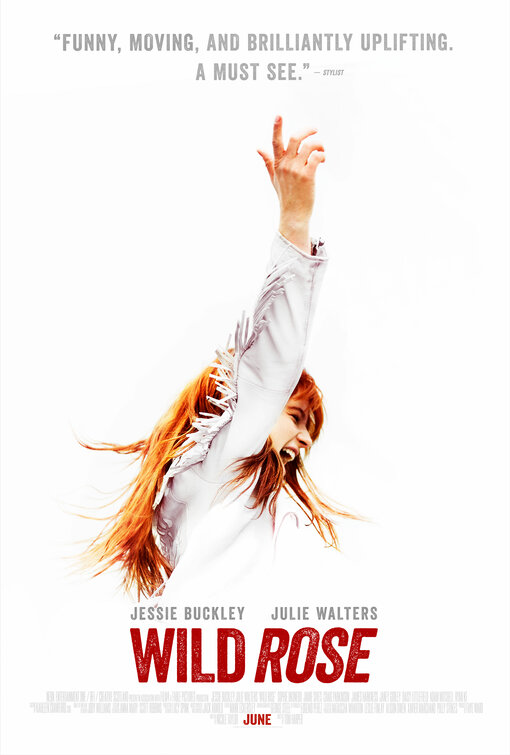A Scottish girl working on the economic margins of Glasgow, Scotland wants to be a country music star. So she sets her sights on Nashville and casts everything aside to get there, including her to young children. A Star is Born rip off? Not quite. Wild Rose,” has a lot of heart, as well as heartfelt performances, that allow this British produced movie to hold its own as a story and film.
But before rolling your eyes (American movie fans), allow me to provide a little pop culture historical context that might give this film more substance than meets the eye. The Beatles started the so-called British invasion in the 1960s but it may never have happened without country music. The R&B roots of modern rock music is well known. The country music roots are not. (I am writing a book on the Beatles right now, so I am steeped in this pop culture history.) Yet what we now call rock music is started as a country and R&B fusion. This combination produced progeny such as rockabilly, country rock, and, later, rock and roll. The Beatles drew heavily on early rockabilly artists including Carl Perkins, Buddy Holly, Roy Orbison, and Elvis Presley, all with deep roots in country music. In fact, the Beatles, particular Ringo Star, never lost their affection for Country music. The rockabilly sound was foundational to the home-grown British “skiffle” sound which became an artistic bedrock for the Beatles and other British acts.
None of this background is essential for enjoying Wild Rose, but the knowledge allowed me to go into the movie with an open mind. I’m glad I did because the movie is entertaining with a poignant message about hope, responsibility, and maturity. The story starts off with Rose Lynn Harlan (Jessie Buckley), an aspiring Scottish country singer living on the wrong side of the tracks in Glasgow getting out a jail after a year-long stint for drug possession. When someone challenges her about why she sings country music, she responds with the familiar adage attributed to the “dean” of country music songwriters Harlan Howard that “Country music isn’t nothing but three chords and the truth.” The screenwriters clearly have an affection for country music, and it shows in the story and on the screen.
Rose is “wild” — a care-free single mother of two, who steadfastly refuses to take responsibility for her decisions as a teenager and young-adult. Now in her mid-twenties, she is estranged from her two young children and pushing her hard working, caretaker mother (Marion, played by Julie Walters) to the limit. We quickly see that the celebrity dream in Nashville is Rose’s attempt at self-validation and escape from the dreary subsistence living of a maid or bakery worker. When a wealthy woman (Susannah played by Sophie Okonedo) hears her singing and decides to help her career out, Rose’s wilding and irresponsibility begin to catch up to her with potentially catastrophic personal consequences.
The movie is well cast, with excellent acting all the way around. For the most part, the story holds together, although the end seems a bit rushed as the director attempts to tie up a lot of loose ends too quickly to stay in the conventional film format. Notably, Wild Rose is set in Glasgow, Scotland, and the Glaswegian dialect and idiom — the “Glasgow patter” — is thick. At times, as an American, I felt like subtitles might have helped, but the action, tone, and context made the story easy enough to follow.
The heart of Wild Rose, however, is Buckley. She has a great voice and an interpretive style well suited to the country music and lyrics she sings as well as the story the movie tells. She delivers on strong, heart felt scenes and songs that effectively carry Rose Lynn’s real world travails into the metaphoric songs she sings and listens to as part of the character.
Overall, Wild Rose is a satisfying film with strong performances, and I enjoyed it much more than I expected.
